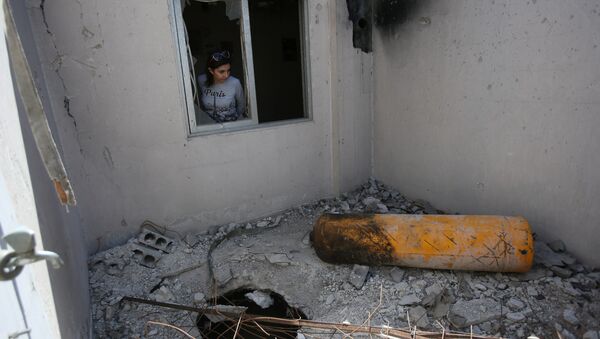"Up to now, no signs of misuse [of isopropanol] have been detected," Fabian Maienfisch said.
Maienfisch said that Syria had announced about its chemical weapons program in 2013 and joined the Chemical Weapons Convention, adding that the Organisation for the Prohibition of Chemical Weapons (OPCW) had confirmed that the destruction of Syrian chemical weapons had been completed.
"As opposed to the European Union that had prohibited exports of isopropanol [to Syria] because of the anti-Syria sanctions, Switzerland has standardized exports of this production by a law… The export of these products from Switzerland is not prohibited until there are no signs of its illegal use," the spokesperson added.
READ MORE: Syrian Opposition Member: No Way to Determine Who Carried Out Douma Gas Attack
According to the official, no instructions prohibiting exports existed when isopropanol was exported to the Middle Eastern state, but the SECO would not give permissions for such exports in future and the export policy would be tougher in future.
Earlier in the week, Swiss media reported that in 2014 Bern authorized exports of five tonnes of isopropanol, which is widely used in chemical industry for the production of disinfecting agents, cosmetics, household chemicals and antifreeze among others. However, it could also be used in the production of the sarin gas.
READ MORE: Syria Charity Head Admits NGO Spread Fakes, Fabricated by White Helmets


